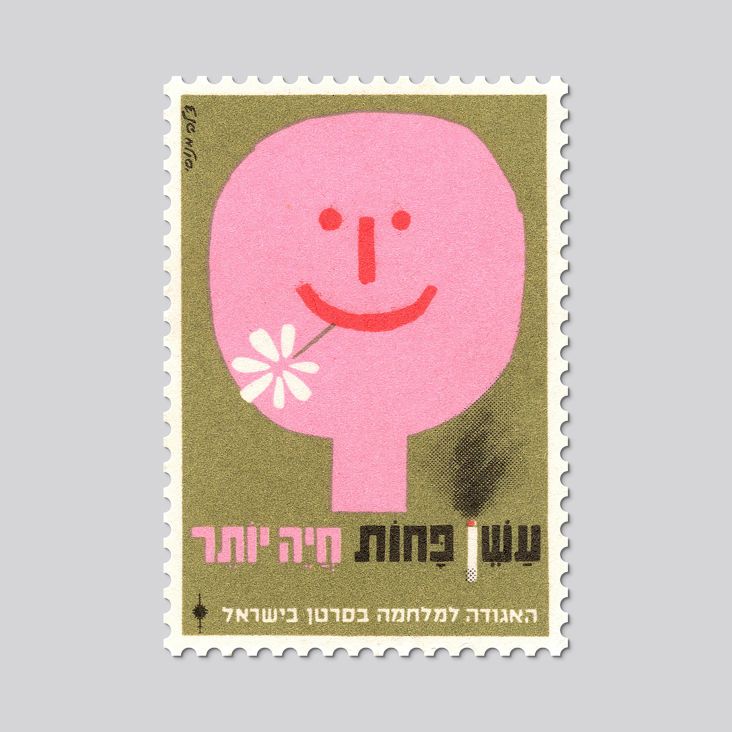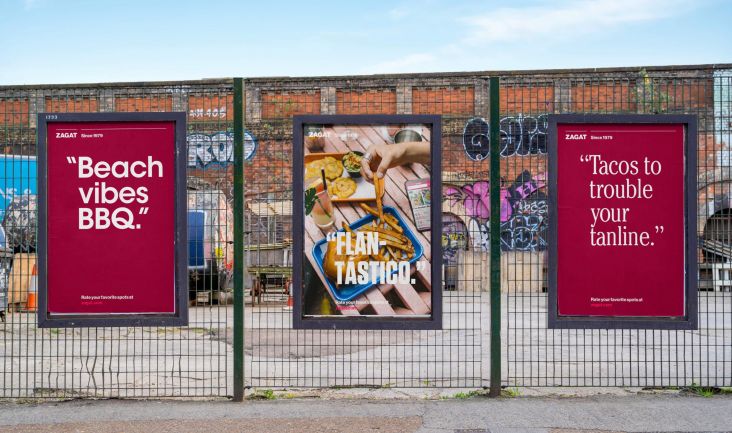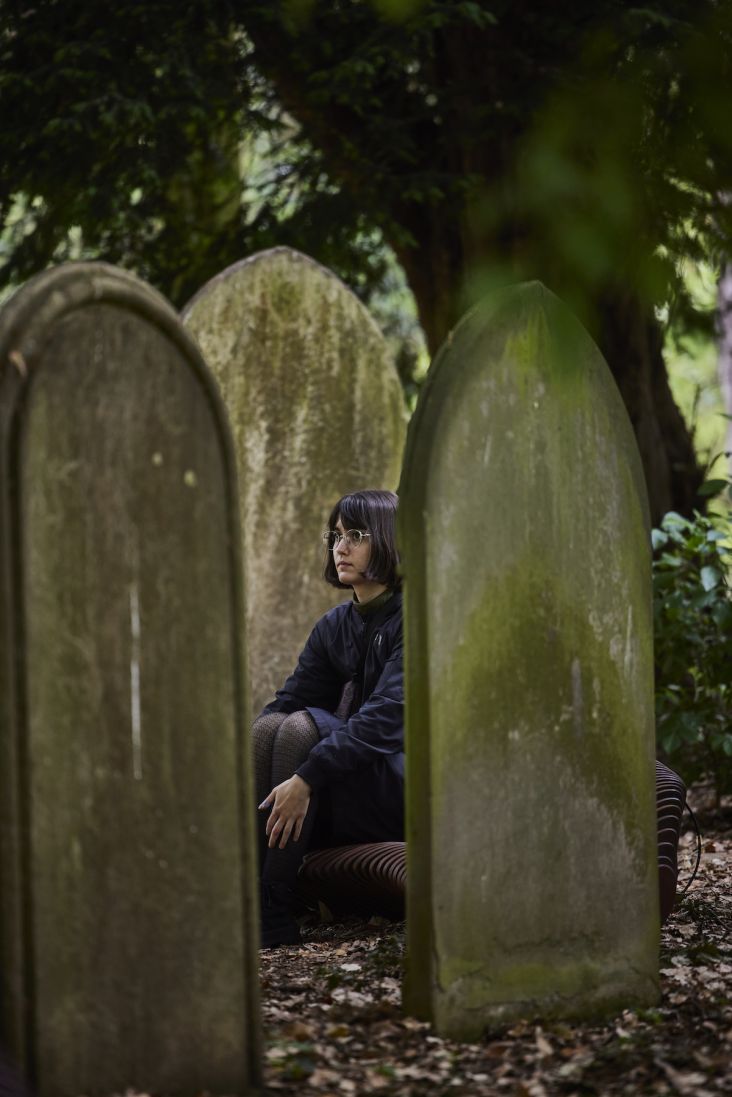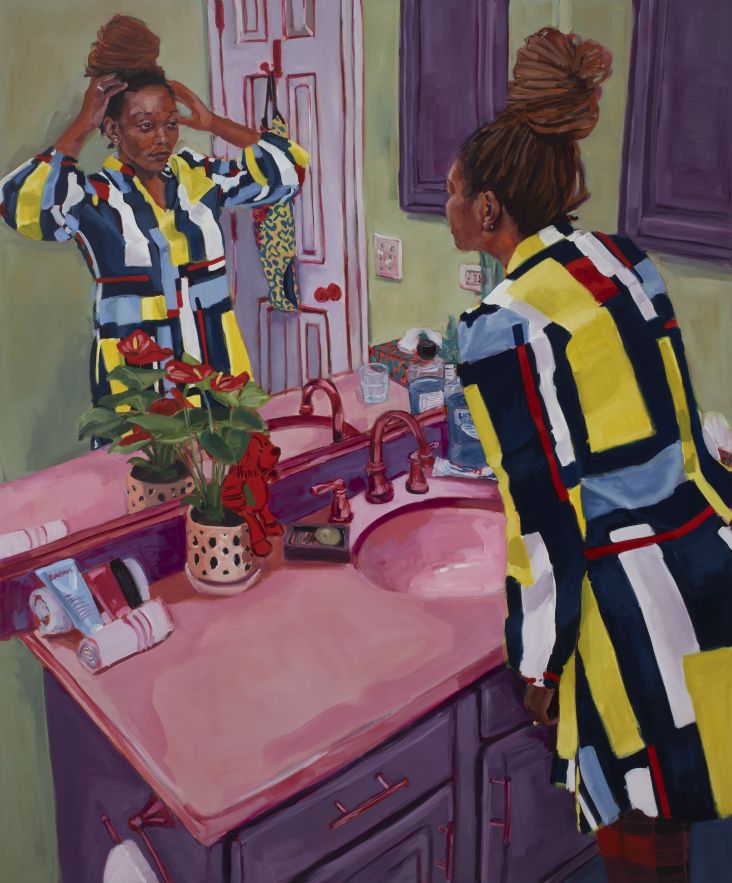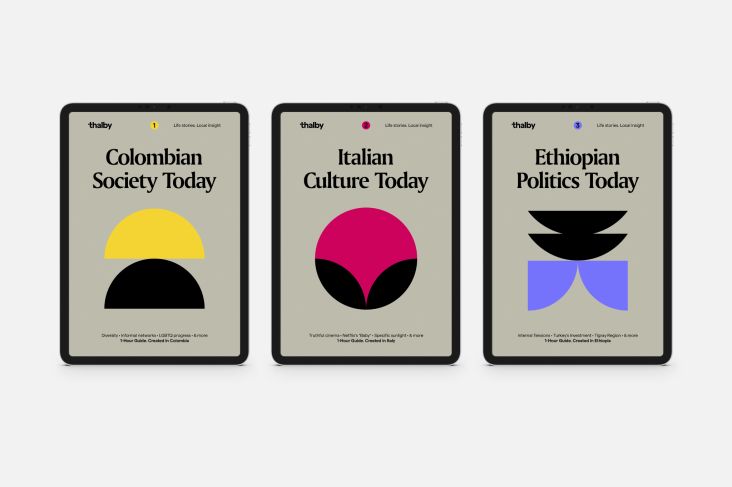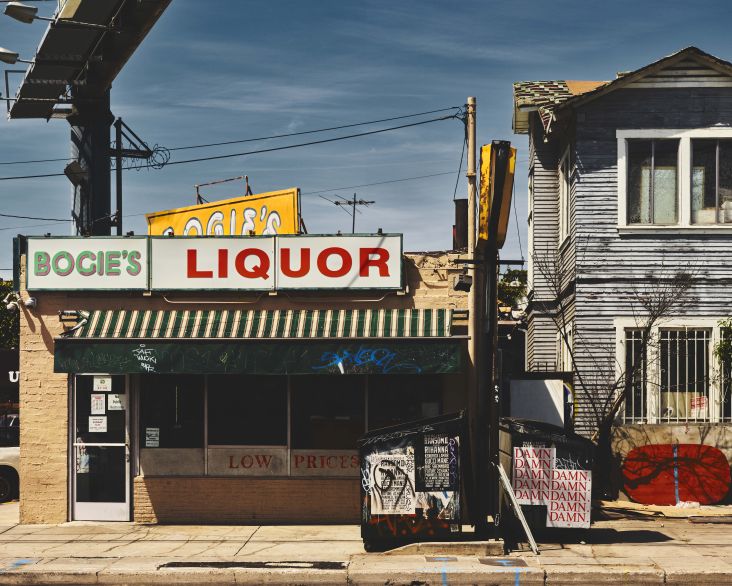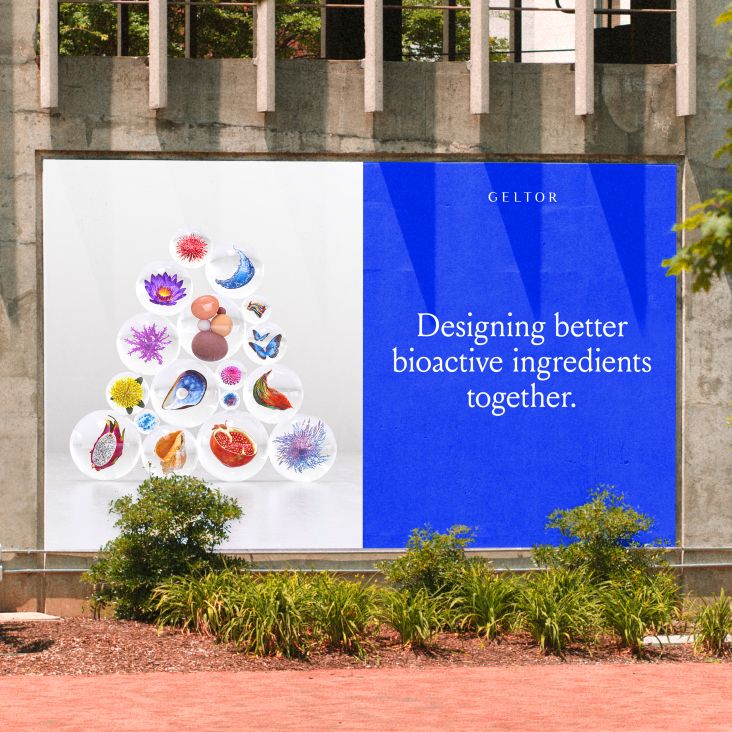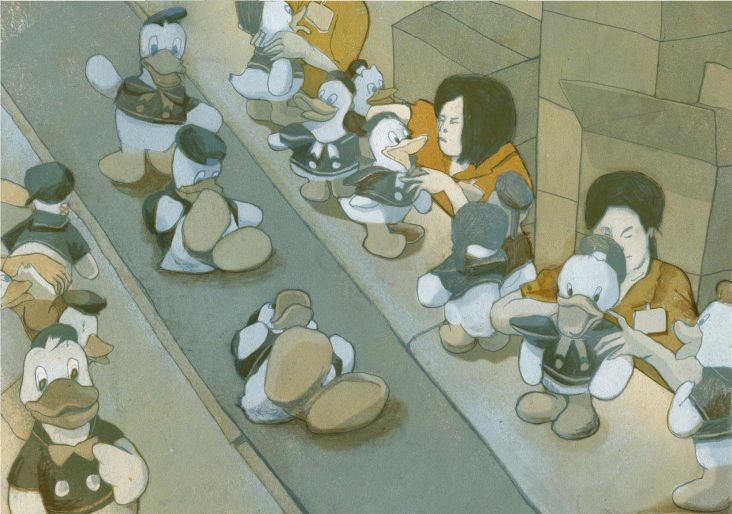Philip Lindeman's playful illustrations find the funny side of modern life
Netherlands-based freelance illustrator Philip Lindeman populates his detailed, colourful work with humorous visual Easter Eggs to bring joy to himself and viewers. His playful outlook on life has even found a funny side to the pandemic.
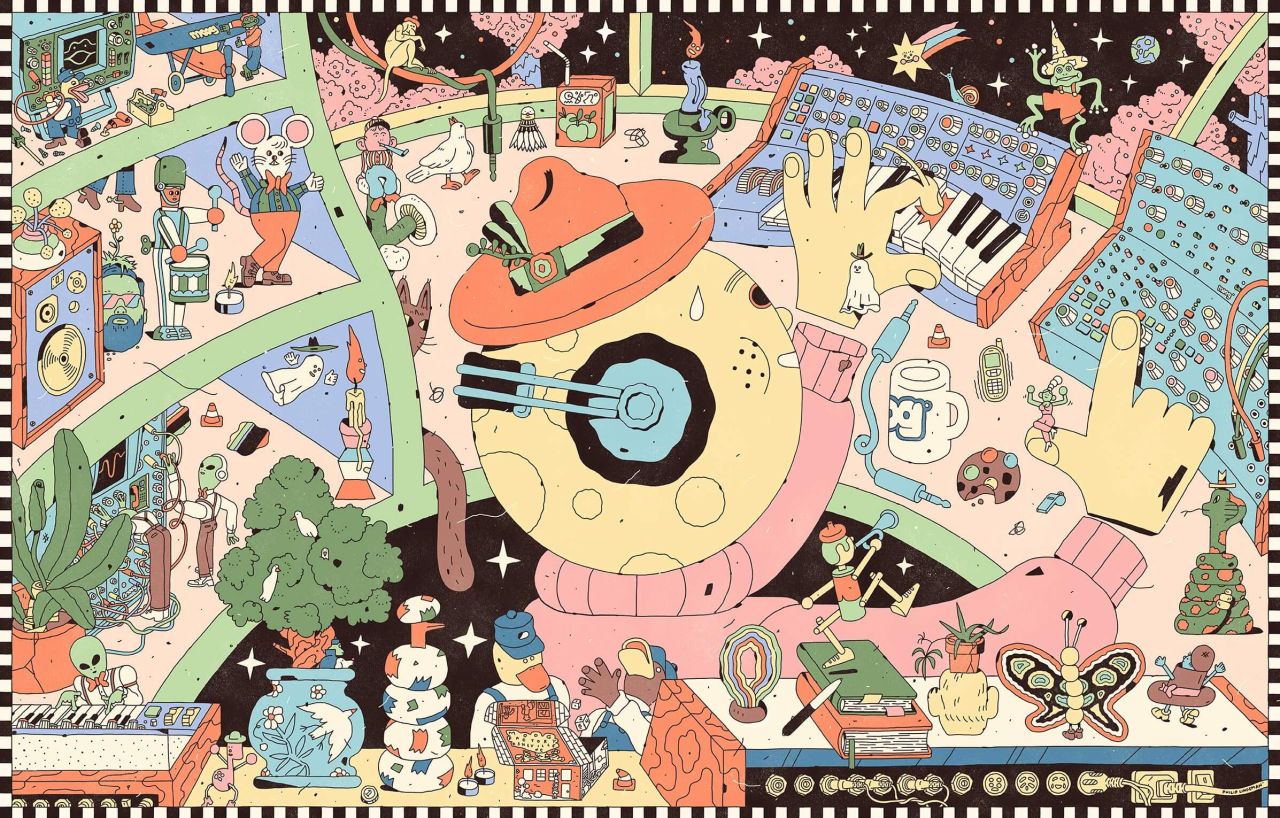
Philip first turned to humour as a way to escape boredom. Growing up in a small town in the Netherlands where there wasn't much to do, he resorted to skateboarding, pulling shenanigans and painting graffiti as a way to keep himself entertained. He'd been drawing during this time, but it wasn't until his high school dean introduced him to a graphic design course that his plans for an artistic career started to fall into place. "This sounded like music to my ears, and I immediately wanted to jump right in," he tells Creative Boom.
From here, Philip moved to the comparatively big "(but actually quite small)" city of Utrecht, where he met like-minded graphic design students and started to flourish creatively. During his last year of graphic design studies, he was invited to participate in a half-year residency at an artistic complex in Barcelona. During this time, he honed his witty visual voice and worked towards a solo exhibition in the heart of the city.
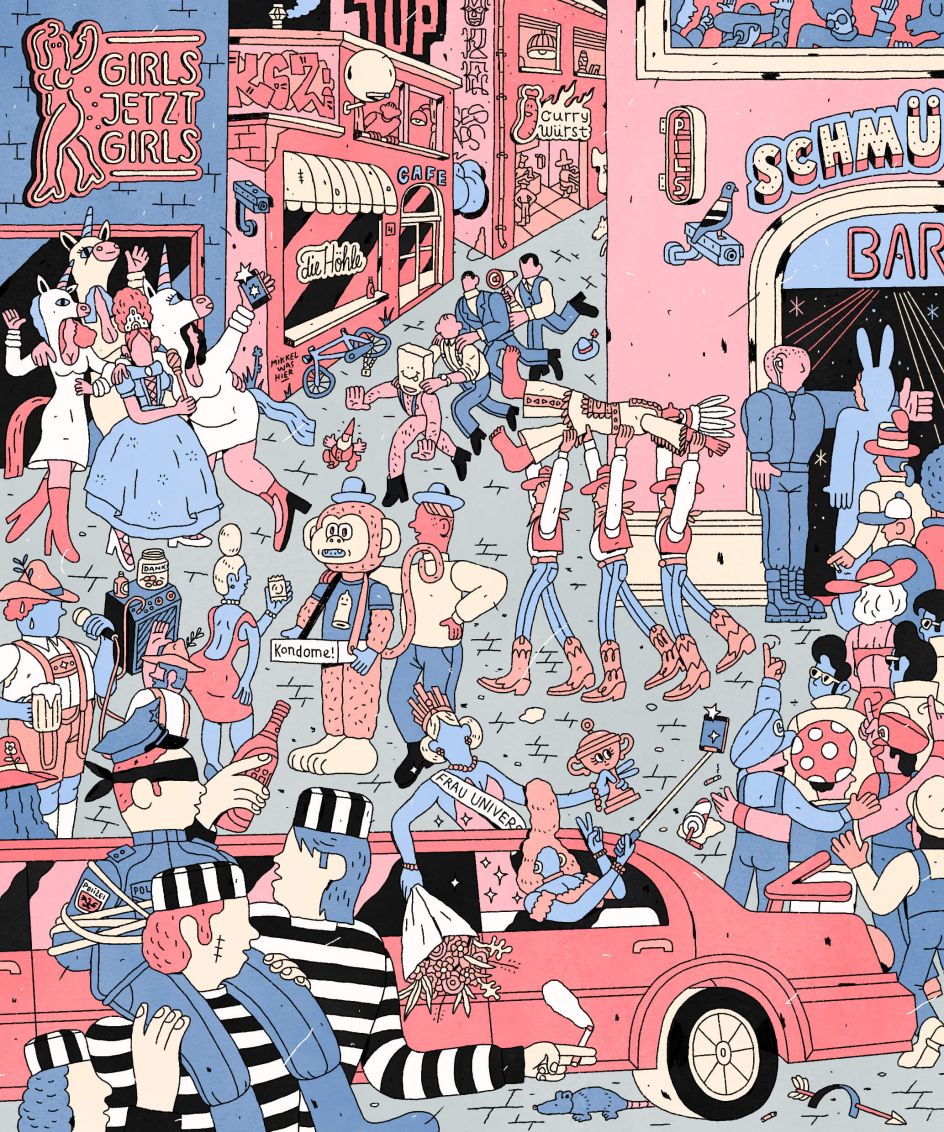
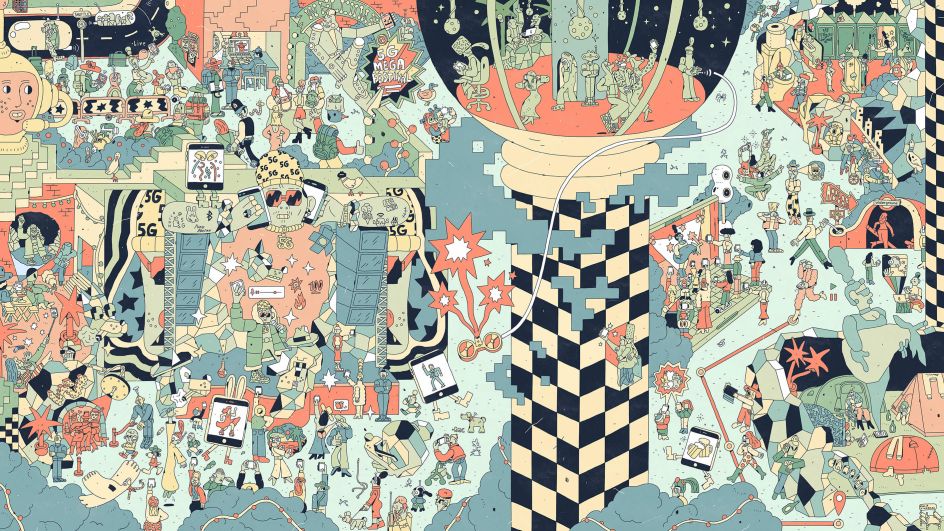
"With the portfolio I built up in Barcelona, I was eventually admitted to the University of the Arts in Utrecht to study illustration," Philip explains. "The art academy invited (or forced) me to not only find depth in my work but also to experiment with and research materials." These assignments pushed him out of his comfort zone until he eventually fell back on a visual language and working method that suited him most. "Currently, I work in a way where I feel I have full control to set up worlds and to be able to expand them."
And it's these vibrant, unmistakable worlds that have appeared in editorial illustrations for publications such as De Volkskrant, De Standaard and Vpro Gids. Philip's worlds draw their inspiration from retro props, memorabilia, vintage American visual culture, fashion, and movies, bursting with detail, character, and an assortment of iconography.
"But most of all, I feel inspired by situations from daily life, people I pass by on the streets and human habits," Philip reveals. "When I take a train ride, pass the market or have a beer at a bar or terrace, I get thousands of ideas for drawings of figures. Sitting down and collecting these thoughts in my sketchbook is something I love doing from time to time." And if he's unable to dash down ideas in his sketchbook, he trusts his subconscious to record what he's seen, safe in the knowledge his observations will appear in his work at some point.
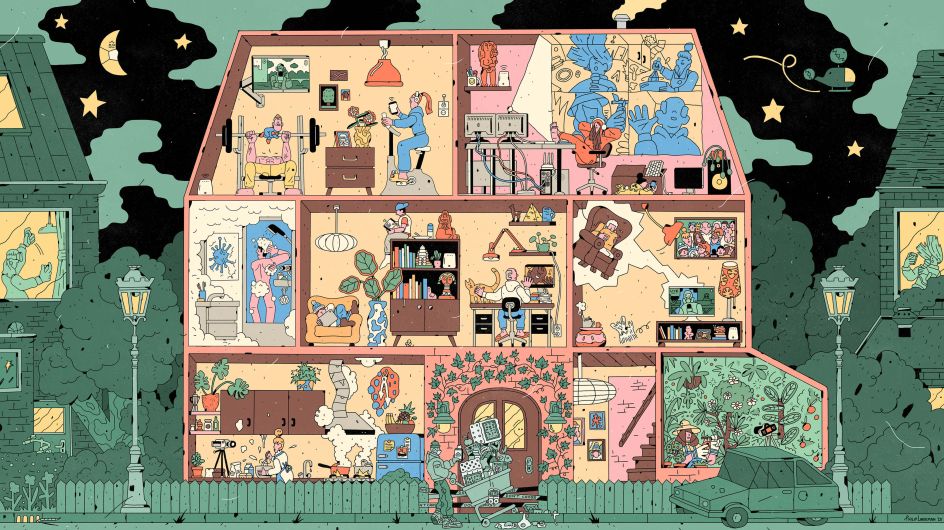
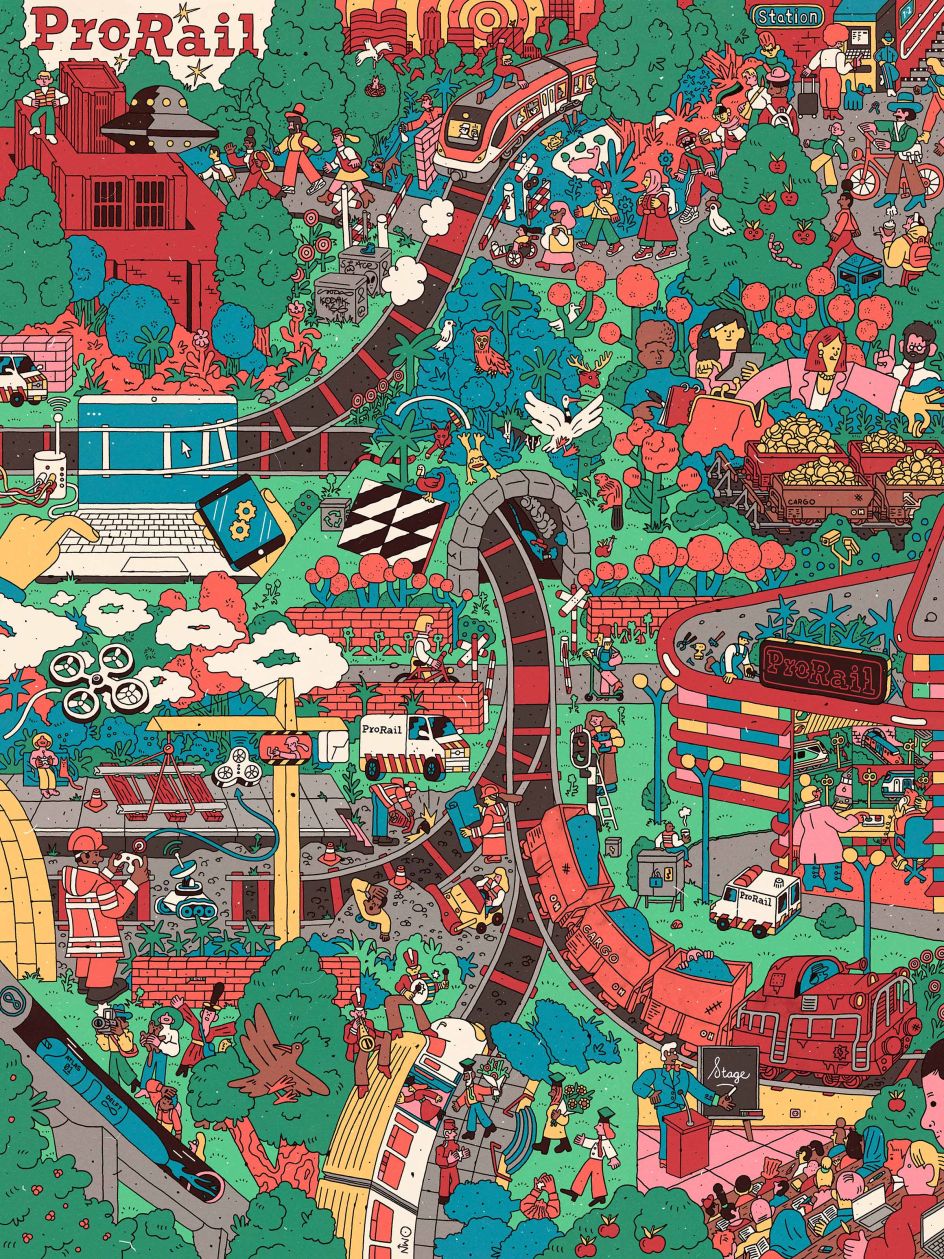
He adds: "I store the way people behave, express, and dress, and I want to propagate my illustrations with these observations. In this way, I hope to present a world that is a reflection of the time in which we live, and one where the characters feel recognisable to the viewer."
Two of the pillars of Philip's style are playful and accurate line work and a bold colour palette. And despite being picked out with digital tools, he always strives to capture an analogue feel with deliberate scratches, grainy lines and faded hues. These elements work together to create illustrations that feel both modern and timeless and give his characters and atmospheres a distinctive appearance. And this is even without considering his humour.
"Humor plays a major role in my work, and I like to look for reasons (or should that be excuses) to implement it in these worlds," Philip explains. "This urge often results in worlds in which a certain degree of complexity is present and in which many details can be viewed. The hectic pace in my worlds is very typical for my style."
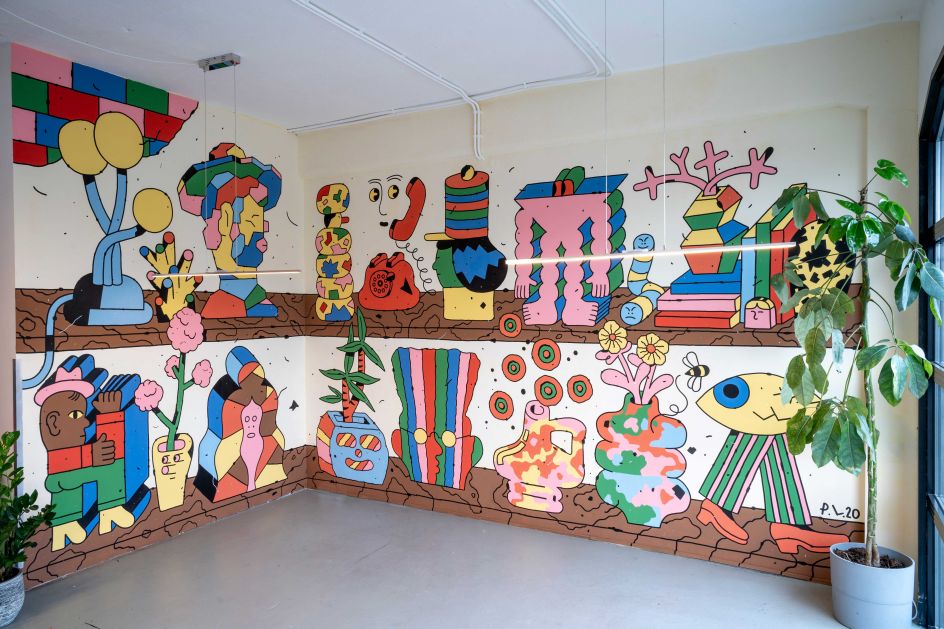
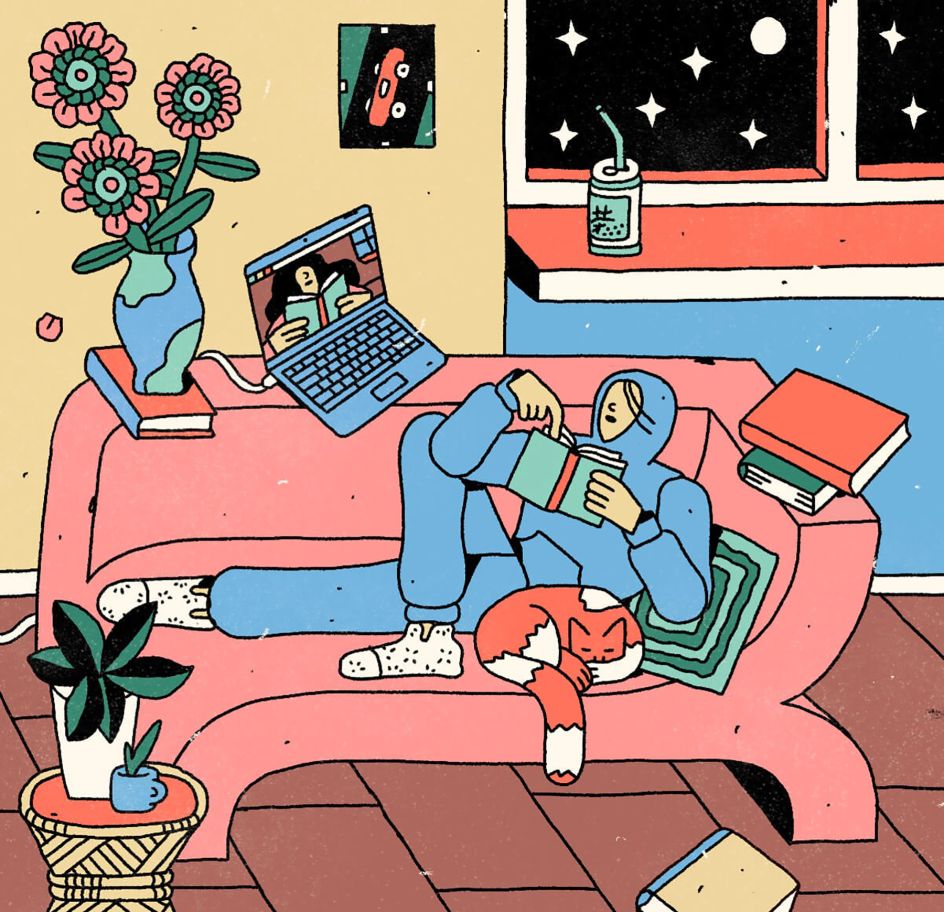
And despite the humourless situation we all found ourselves in last year, Philip was lucky enough to work on plenty of fun projects for newspapers, magazines and commercial projects. He's even experienced something of a creative boost.
"The coronavirus crisis also made me work for clients where I was able to capture and present an image of the time," Philip reveals. "I made illustrations about topics like the fear for scientists and vaccinations, the inability to leave the house and the loneliness caused by lockdowns.
"But I also found funny Covid-related topics, like people performing home exercises, cooking, reading books and relating to technology and social media. These are heavy times, but there's space to treat illustrations about the health crisis in a light-hearted way. They help to put things into perspective, and everything is easier to discuss with a good dose of humour."
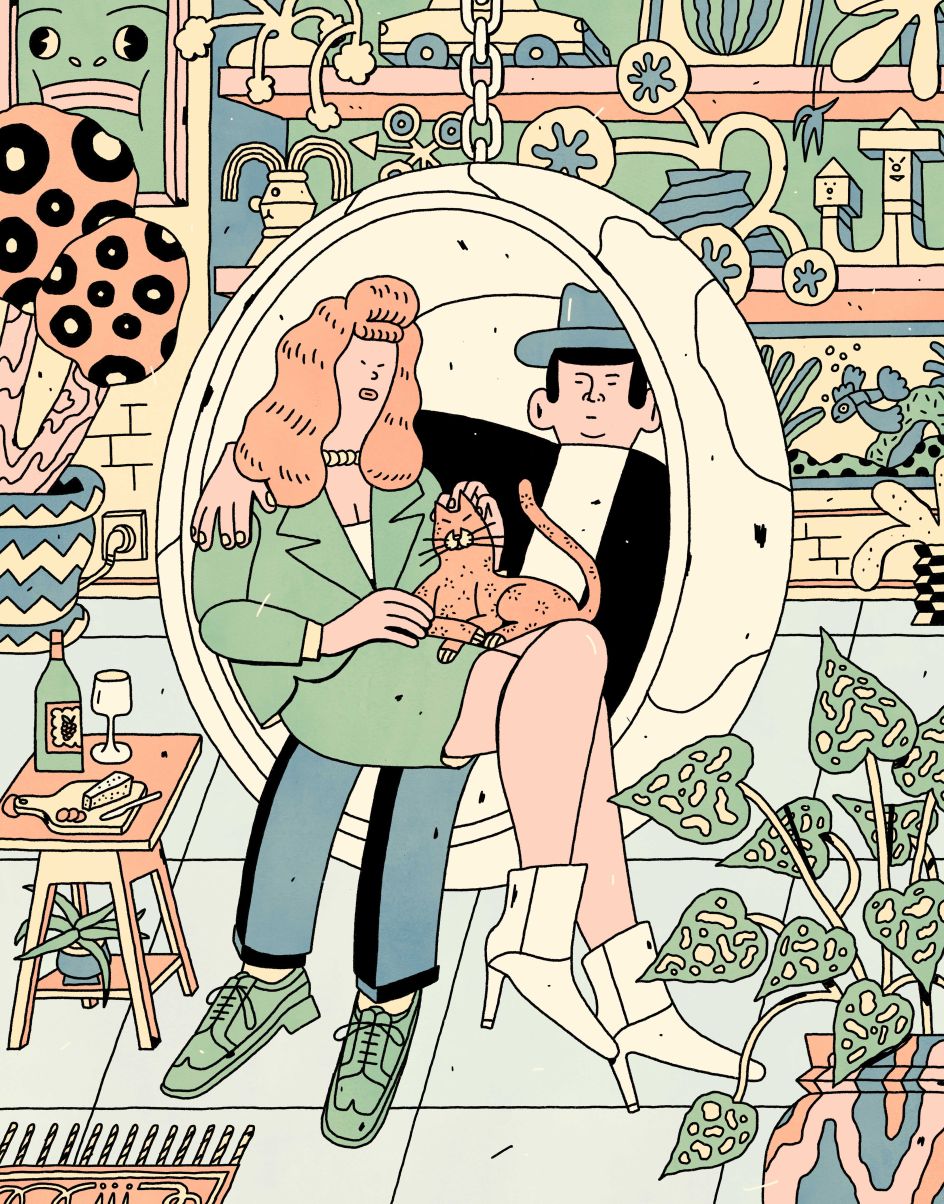
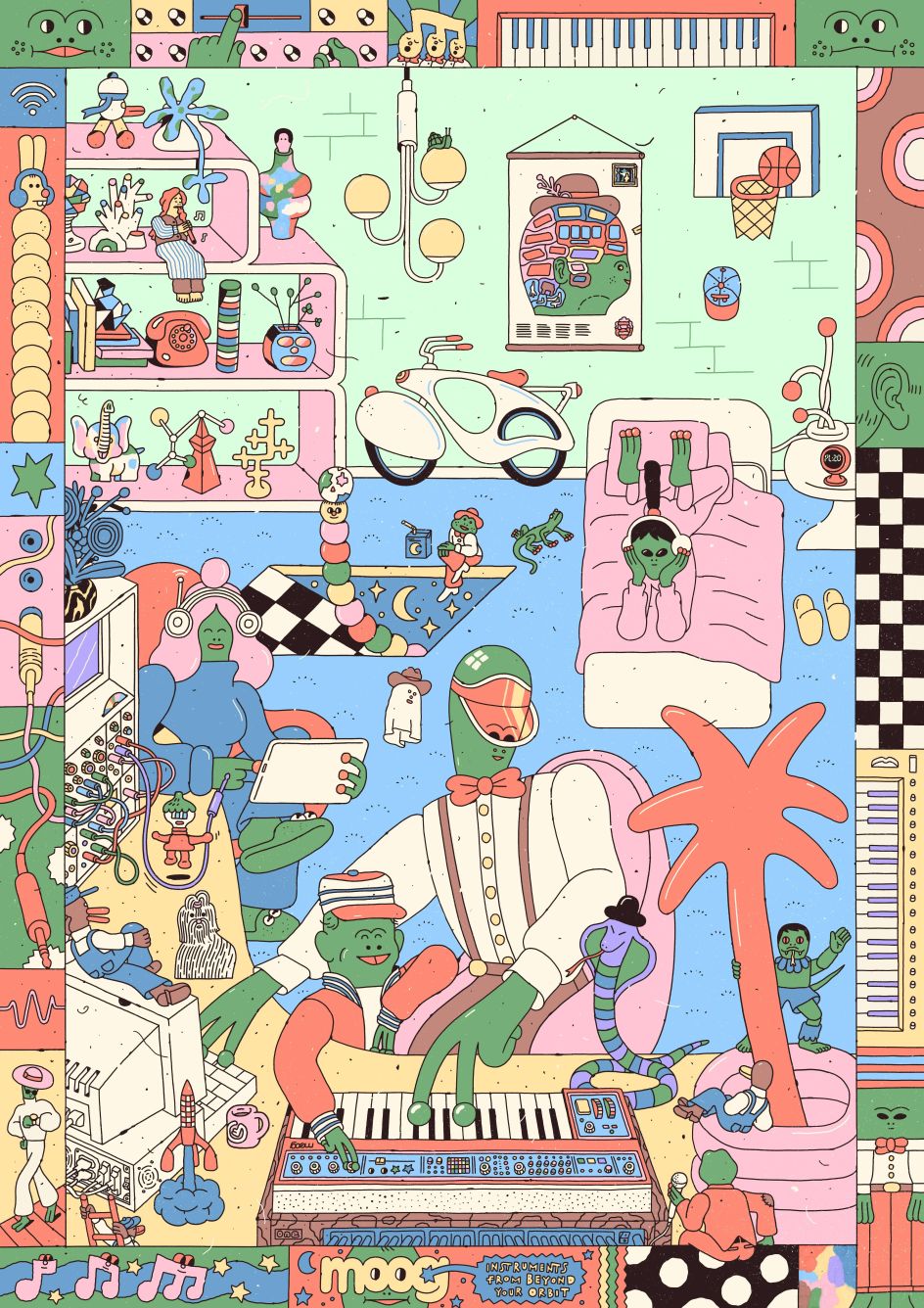
Aside from his commercial work, Philip's current personal projects include a series of paintings of stylised forms. He'll use them to develop strange figures and cheerful characters, thereby creating a library of people that can also be fed back into his professional pieces. It's a neatly cyclical way of working and shows that Philip loves his passion projects just as much as his collaborations with clients.
"Commercial jobs make me so excited because they force me to work with new subjects and themes that I haven't touched before," Philip says. "I love to get briefed, crack my brain on the context, find clever solutions, and eventually make the subject my own and watch it merge with my world.
"Trusting on my gut and simply having fun while working has always been the most important thing for me. And I think that joy will express itself throughout the work and affect the viewer in the same way."
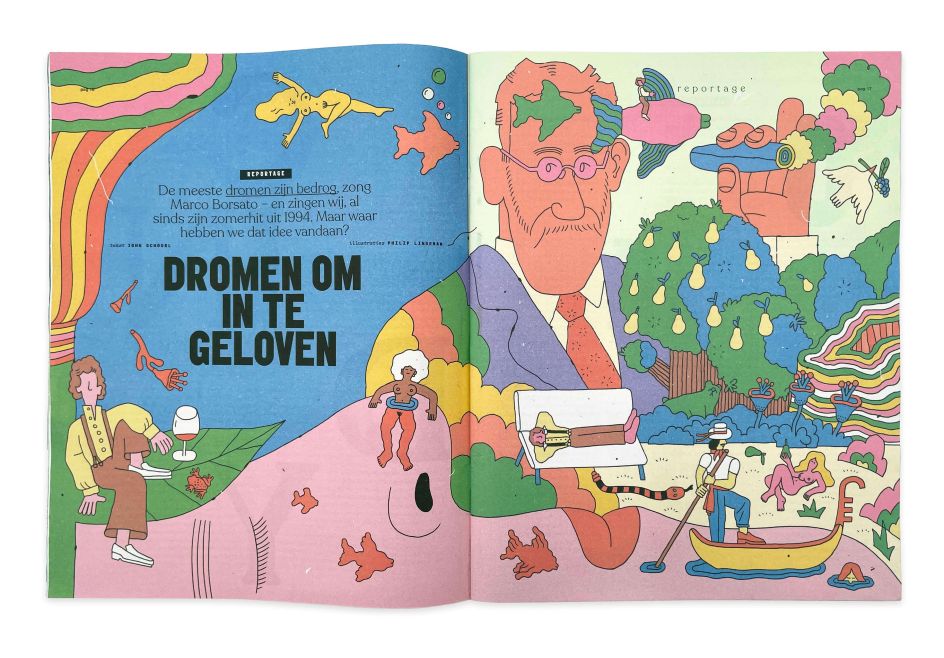
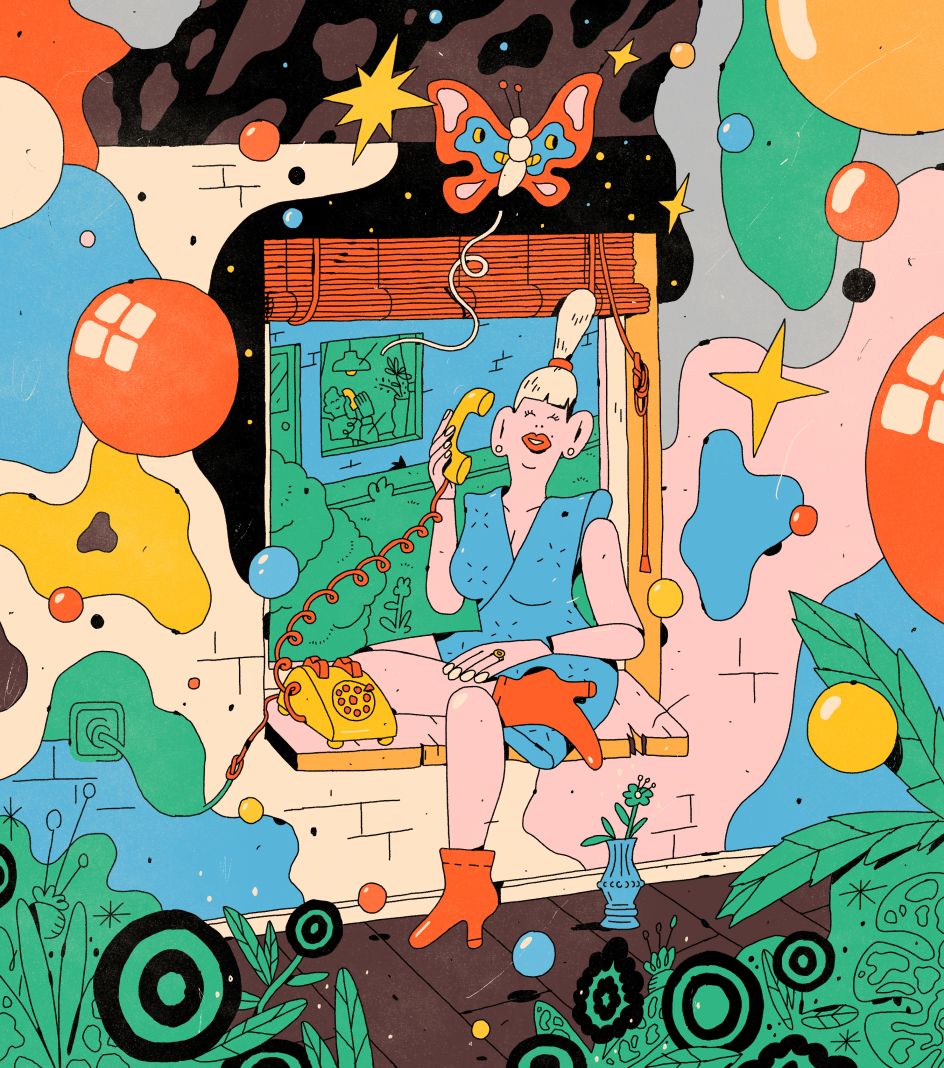
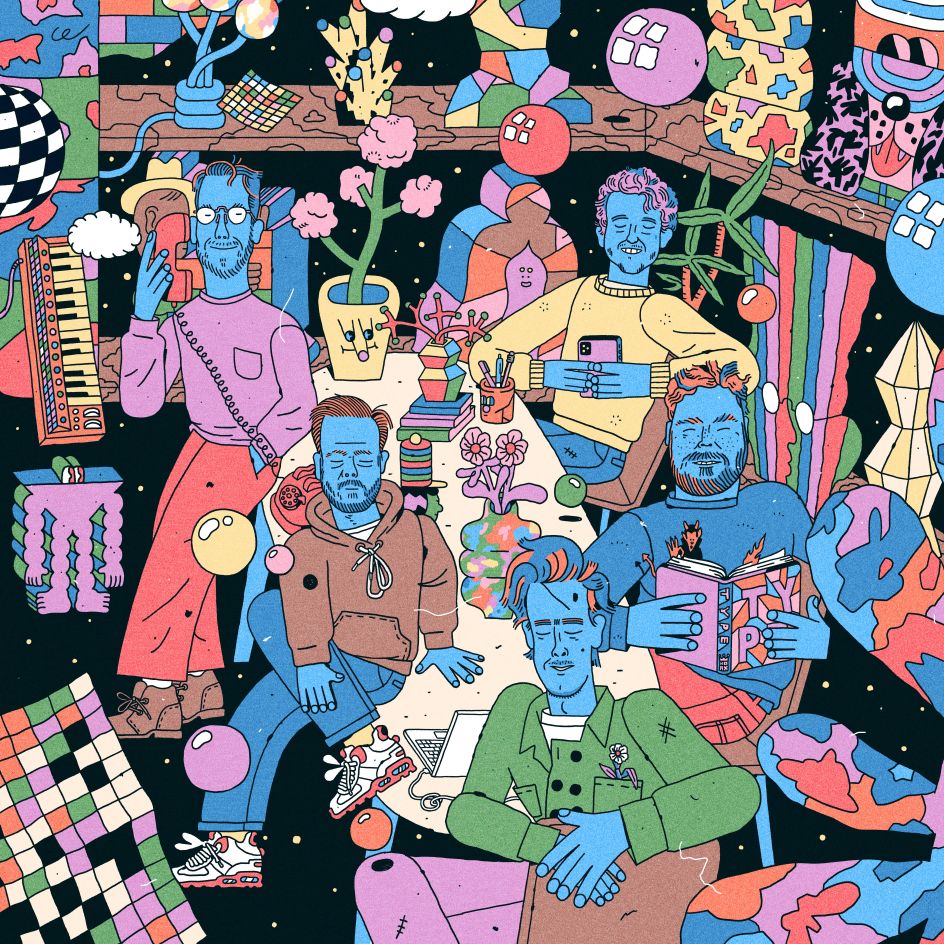




 by Tüpokompanii](https://www.creativeboom.com/upload/articles/58/58684538770fb5b428dc1882f7a732f153500153_732.jpg)


 using <a href="https://www.ohnotype.co/fonts/obviously" target="_blank">Obviously</a> by Oh No Type Co., Art Director, Brand & Creative—Spotify](https://www.creativeboom.com/upload/articles/6e/6ed31eddc26fa563f213fc76d6993dab9231ffe4_732.jpg)








